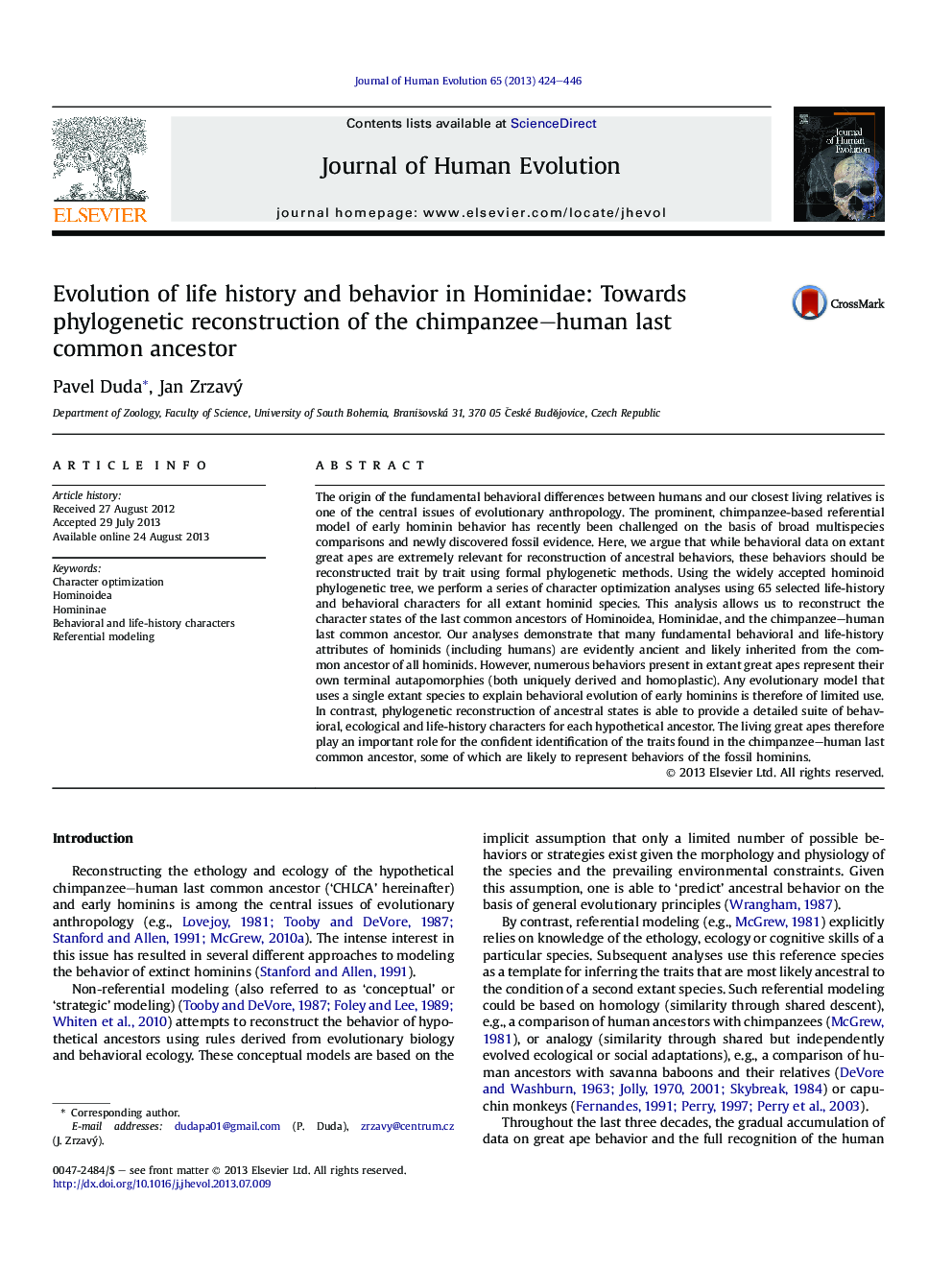| Article ID | Journal | Published Year | Pages | File Type |
|---|---|---|---|---|
| 4556150 | Journal of Human Evolution | 2013 | 23 Pages |
The origin of the fundamental behavioral differences between humans and our closest living relatives is one of the central issues of evolutionary anthropology. The prominent, chimpanzee-based referential model of early hominin behavior has recently been challenged on the basis of broad multispecies comparisons and newly discovered fossil evidence. Here, we argue that while behavioral data on extant great apes are extremely relevant for reconstruction of ancestral behaviors, these behaviors should be reconstructed trait by trait using formal phylogenetic methods. Using the widely accepted hominoid phylogenetic tree, we perform a series of character optimization analyses using 65 selected life-history and behavioral characters for all extant hominid species. This analysis allows us to reconstruct the character states of the last common ancestors of Hominoidea, Hominidae, and the chimpanzee–human last common ancestor. Our analyses demonstrate that many fundamental behavioral and life-history attributes of hominids (including humans) are evidently ancient and likely inherited from the common ancestor of all hominids. However, numerous behaviors present in extant great apes represent their own terminal autapomorphies (both uniquely derived and homoplastic). Any evolutionary model that uses a single extant species to explain behavioral evolution of early hominins is therefore of limited use. In contrast, phylogenetic reconstruction of ancestral states is able to provide a detailed suite of behavioral, ecological and life-history characters for each hypothetical ancestor. The living great apes therefore play an important role for the confident identification of the traits found in the chimpanzee–human last common ancestor, some of which are likely to represent behaviors of the fossil hominins.
